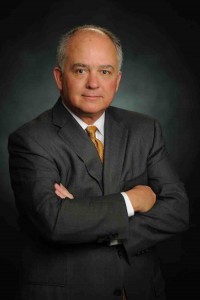PRSA Sections Series: Writing a Critical Skill for Higher Education Communicators

If you have ever wanted to know more about the different types of public relations careers straight from professionals, then the PRSA Sections Series is here to help. The PRSA Sections Series highlights the 14 different PRSA Professional Interest Sections. Each month, two professionals will answer questions about their specific subcategory of the industry.
Our fifth post in this series was written by Tom Eppes, APR, Fellow PRSA (see bio below) and focuses on the Counselors to Higher Education.
1. What kind of work do professionals in your section typically do?
It is unlikely that there are any two universities with an identical organizational structure and responsibilities, but the vast majority will likely handle media relations, responding to inquiries or distributing news ideas or fully developing news items and features. Many also have responsibility for magazines and newsletters that are distributed to various constituencies, including alumni, donors and others. Beyond those fairly basic functions, some communications groups manage a university visitors center, respond to Freedom of Information Act requests or even run major printing operations. Staff in these departments often come from journalism schools, but a key requirement is that they have strong writing abilities. Marketing skills are increasingly important as universities compete more aggressively for students.
2. What can students expect when pursuing an entry-level position in this industry?
University communications groups are a great place to start a career, since the range of experiences is broad. Activities in any given day may include crisis communications, event planning, marketing consulting, research, preparation of brochures and other printed materials, government relations and many other activities. It’s rare that any other corporate or agency role will provide as many experiences and it’s very rare that any two days are the same.
3. What advice do you have for students looking to enter your sector of public relations?
Work hard to develop your writing skills. That’s still the first requirement for success. If you don’t like to write, and if you’re not good at it, you should consider other career paths. Sweat the details; errors are not acceptable in public communication. Study strategic planning. Good strategists become leaders. Start thinking very early about earning a master’s degree, or even a Ph.D. As you might expect, advanced degrees are highly valued at universities. The good news is that many universities offer classes for free to employees.
4. What essential skills do students need to do well in the industry?
Writing and strategic thinking ability. Strong presentation skills are essential to advancement in any public relations field.
5. What has surprised you most throughout the course of your career?
I’ve been surprised at how unique it is to have good writing skills. You will be invaluable to your organization if you write well because too few people have that talent. I’ve also been surprised that about half of the professionals I’ve known in the public relations field have strong analytic and strategic abilities, and the other half don’t. Those with strategic abilities are typically the people who rise into leadership. Those without typically stay in tactical positions.
Does this post have you interested in a career in higher education communications? Be sure to check out the PRSSA Internship Center and the PRSA Job Center for opportunities.
—
Tom Eppes, APR, Fellow PRSA, is the chief communications officer at The University of Mississippi where he leads a team of 40 professionals responsible for all internal and external communications at Ole Miss, except athletics. Prior to this position, Eppes lead major public relations and advertising agencies. Eppes has been elected to top leadership positions with both advertising and public relations organizations, including national board member and treasurer with the Public Relations Society of America, chair of the PRSA Board of Ethics and Professional Standards, executive committee member for Counselors to Higher Education, board member for both Memphis and Charlotte PRSA Chapters, board member of the Counselor’s Academy and president of the International Communications Agency Network. Follow him on Twitter @tomeppes.
